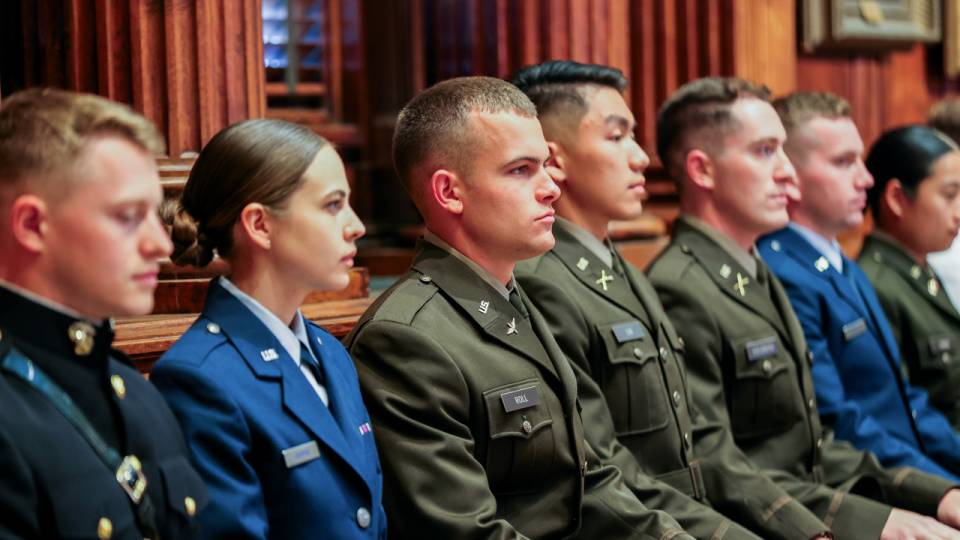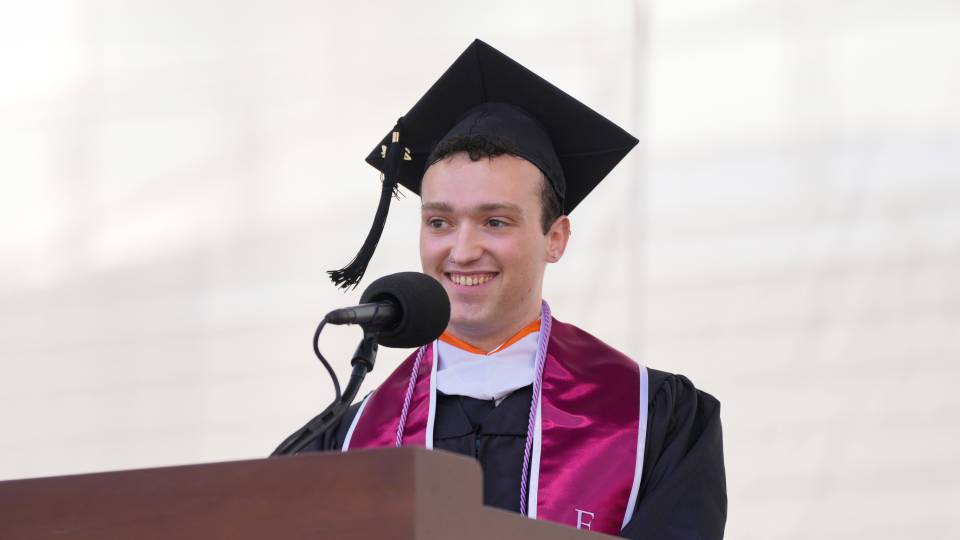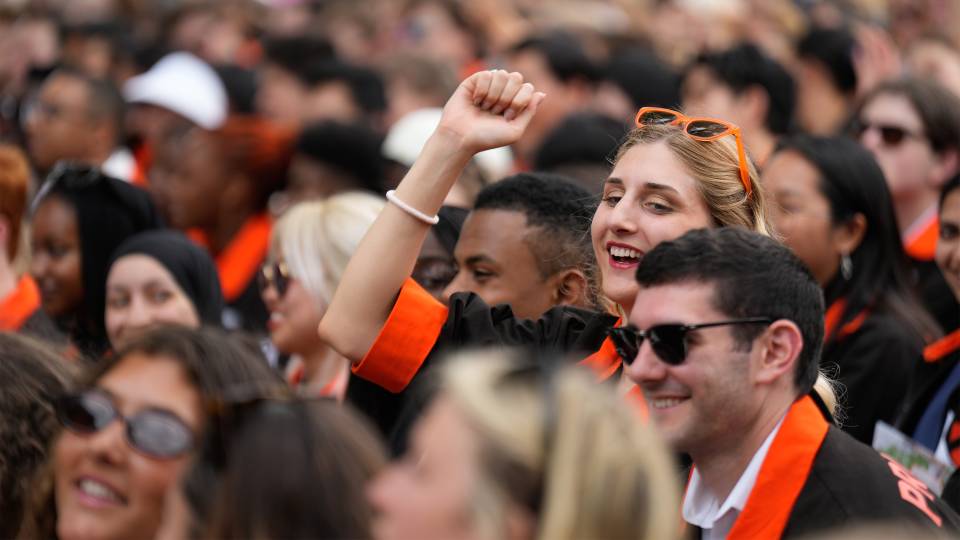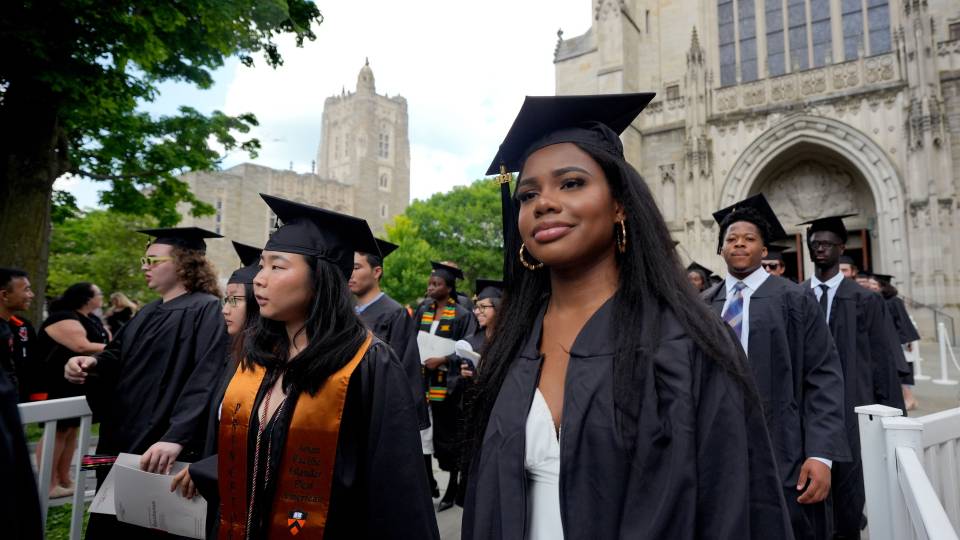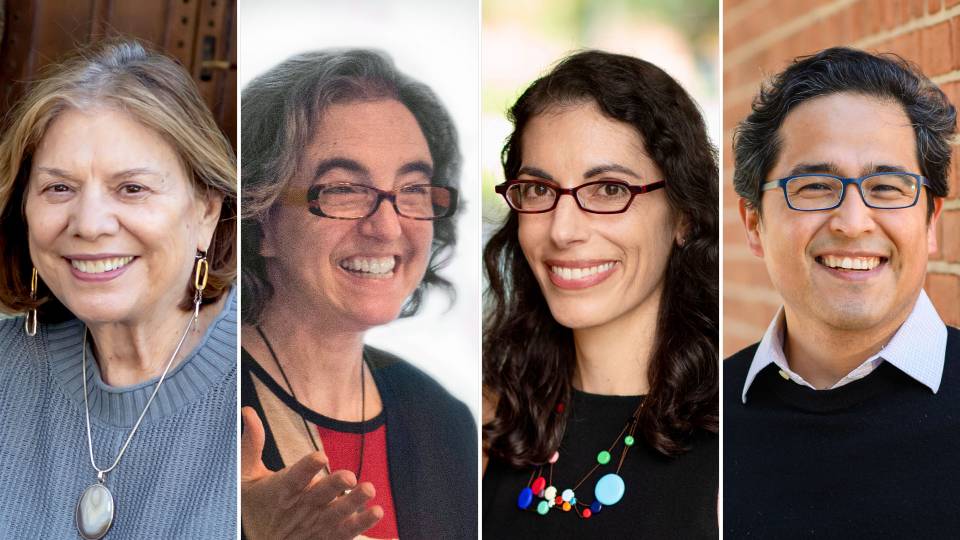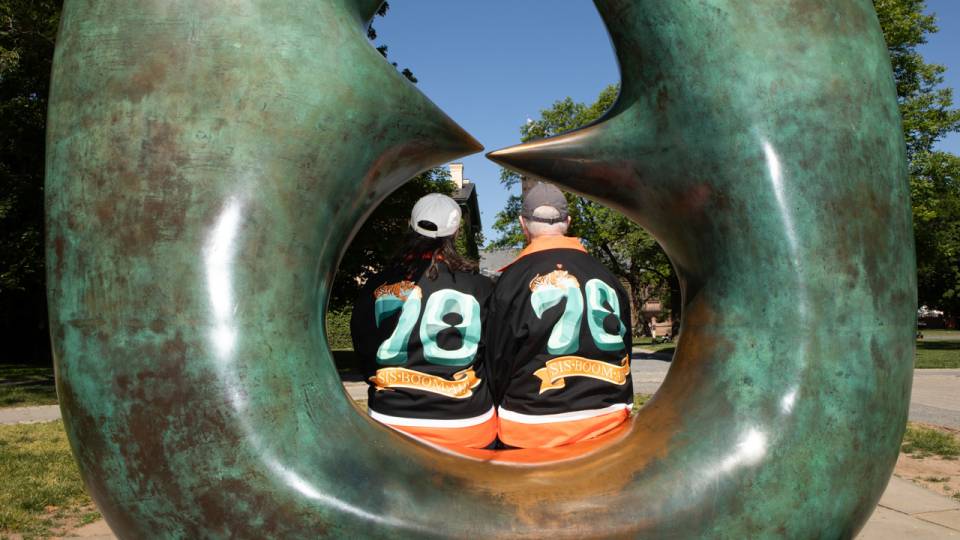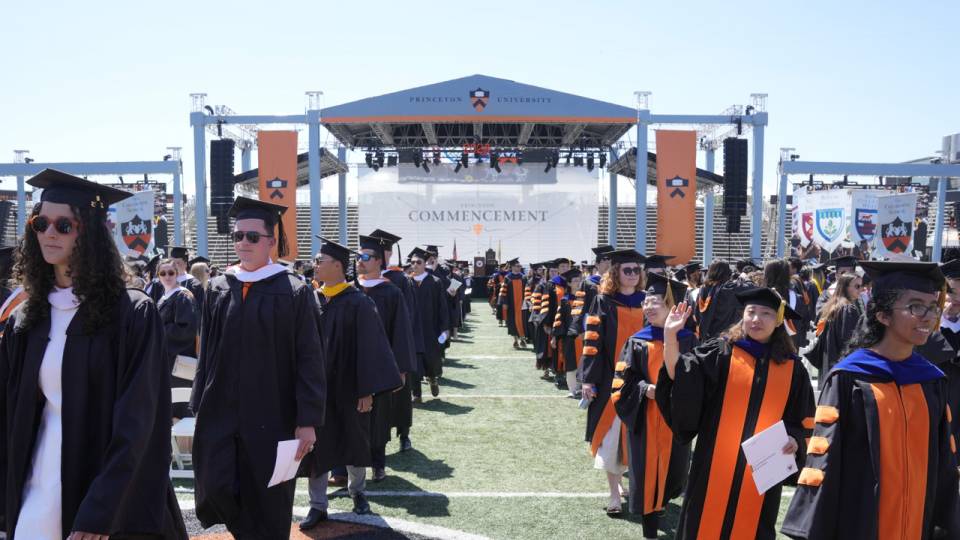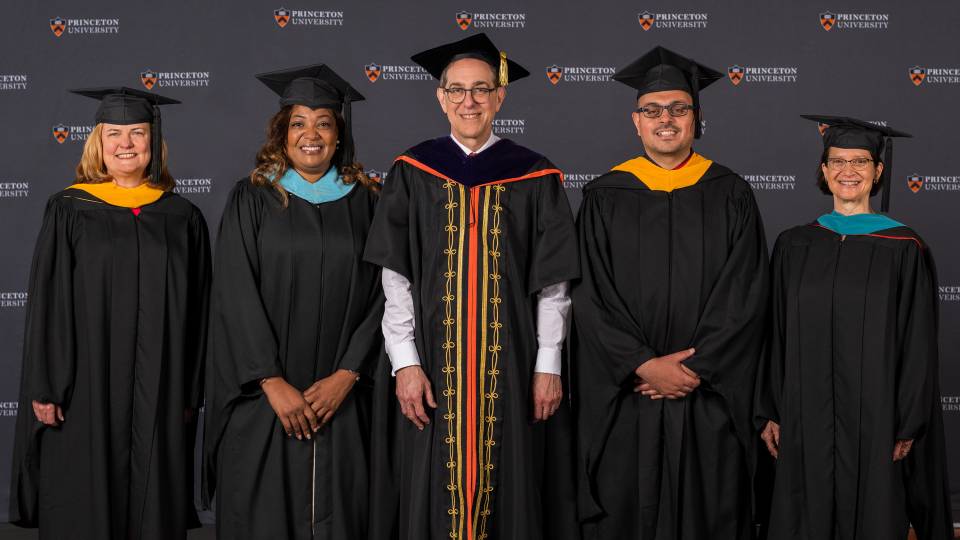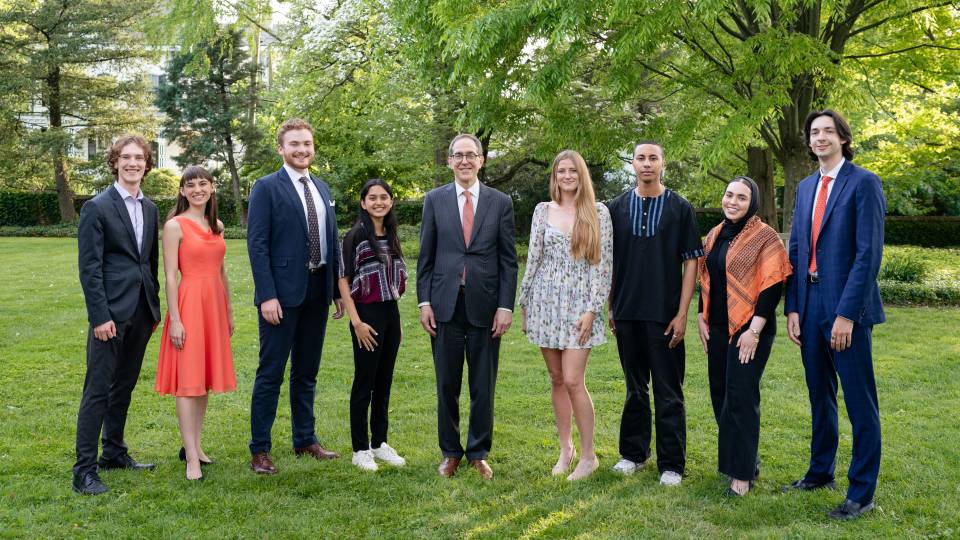Genrietta Churbanova, an anthropology major from Little Rock, Arkansas, has been named the Princeton Class of 2024 valedictorian. John Freeman, a classics major from Chicago, has been selected as the salutatorian. The Princeton faculty accepted the nominations of the Faculty Committee on Examinations and Standing at its April 15 meeting.
Commencement(Link is external) for the Class of 2024 will take place at Princeton Stadium on Tuesday, May 28. Churbanova and Freeman are expected to give remarks at the ceremony.
Genrietta Churbanova

Genrietta Churbanova
Churbanova is deeply engaged in scholarship related to Chinese and Russian relations. In addition to her anthropology major, she is minoring in Russian, East European and Eurasian Studies, and Chinese language and culture. She was named a 2024 Schwarzman Scholar and will pursue a master’s degree in global affairs at Tsinghua University in Beijing after graduating from Princeton.
Faculty across the Department of Anthropology described Churbanova in a letter of recommendation as a student “beyond compare” and as a “brave, caring and brilliant scholar” and a future leader. “I believe her to be one of the most exceptional and rigorous students we ever had in our department,” wrote Onur Günay, director of undergraduate studies and lecturer in anthropology.
“Genrietta exemplifies the very best of a Princeton education and citizenship,” wrote João Biehl, department chair and the Susan Dod Brown Professor of Anthropology. “Conscientious to a fault and deeply ethical, at this very young age Genrietta is producing rigorous, pathbreaking, and public-facing scholarship that will stand the test of time and help to shape critical sensibilities to come.”
Churbanova is a member of the Phi Beta Kappa Society and a two-time recipient of Princeton’s Shapiro Prize for Academic Excellence.
Her senior thesis, titled “Taiwan’s Russians,” is an ethnographic study of the experiences of Russian nationals living in Taiwan. Her junior paper examining the impact of state-level policies on the lives of people along the Chinese-Russian border was published in the Intercollegiate U.S.-China Journal.
Churbanova is “a highly original thinker with a unique perception of the world,” said her thesis adviser Serguei Oushakine, professor of anthropology and Slavic languages and literatures.
“One of the most gratifying things about Genrietta’s scholarly work is her ability to bring together various strands, traditions and sensibilities,” Oushakine said. “Her choice of the Russophone community in Taipei is symptomatic of this: to study this community, Genrietta needed to be comfortable enough with conducting interviews in Russian and Chinese and to write about them later in English.”
Churbanova said doing her thesis research in Taiwan last summer was an extraordinary academic and personal experience. “It highlighted one of the many reasons that I love Princeton: at the University, what you learn in the classroom has diverse applications in the wider world, some of which will inevitably take you by surprise.”
The project also exemplified what she loves about the field of anthropology, she said.
“The discipline complements who I am as a person and I greatly appreciate how anthropologists view the world,” she said. “Given that I spent my childhood between Moscow and Little Rock, I was constantly exposed to various narratives about Russia and the United States, the experience of which attuned me to anthropological thinking.”
Churbanova’s scholarship related to China and Russia also includes a summer internship through the University’s International Internship Program with the Russian International Affairs Council in Moscow, and a gap year after high school studying Mandarin in Beijing through the U.S. State Department’s National Security Language Initiative for Youth.
On campus, Churbanova is president of the student Society of Russian Language and Culture. She said some of her favorite times at Princeton have been spent at the Russian language table — open to undergraduate and graduate students of all language levels — in the Mathey College dining hall.
“I look forward to the language table every week, it is like a home away from home,” she said. “I see this language table as a microcosm of Princeton itself: welcoming, warm and intellectually stimulating.”
In addition, Churbanova is a head fellow at the Princeton Writing Center and a Mathey College peer academic adviser. She formerly served as head opinion editor for The Daily Princetonian and as a fellow with the online college advising program Matriculate.
John Freeman

John Freeman
Freeman, whose research focuses on the repatriation of Greco-Roman art, is also pursuing certificates in German and Hellenic studies. A member of the Phi Beta Kappa Society, he studied abroad in Athens and Rome.
“John is an astounding student with an unparalleled gift for learning language, both ancient and modern, and has an infectious intellectual curiosity that drives him to learn new material, challenge his assumptions, and deepen his critical approach to sensitive issues or material,” said Melissa Haynes, a lecturer in classics who has taught Freeman in a number of courses.
“More than other students with whom I have worked extensively, John thrives on constant intellectual growth and is always looking to broaden his knowledge as he recognizes how new languages and ideas can fundamentally change his own outlook and pursuits,” Haynes added. “I cannot wait to see where John takes his enthusiasm for the past, his passion for tackling hard questions facing institutions and communities who care for that past, and his commitment to constant learning and personal, intellectual growth.”
Freeman said the experiential learning at archaeological sites and museums during his time abroad made “history come to life” in ways he had never imagined. He is now a student global ambassador for the University’s Study Abroad Program.
The experience also inspired his independent research related to the repatriation of ancient art. He wrote two junior papers on the subject, featured in undergraduate journals at Harvard and the University of Oxford, and he presented his research at the New York University Society of Ancient Studies conference and at College Year in Athens. His senior thesis is titled “Complexities and Communities of Care: Greco-Roman Antiquities as Objects of Concern.”
“The case studies which John chose as the focus of his thesis exemplify his creativity and command of classical scholarship. I could not be more impressed,” said his thesis adviser Barbara Graziosi, the Ewing Professor of Greek Language and Literature, professor of Classics and chair of the department.
Graziosi said Freeman has also been a “pillar of our department, not only through his scholarship but also through his service on our Equity, Diversity, and Inclusion Committee and as a tutor.”
Freeman credits his Greek and Latin teachers at the University of Chicago Laboratory High School with first sparking his interest in Classics. “I thought I wanted to pursue history, but then I realized it was really the ancient past that fascinated me,” he said.
In addition to his academic work, Freeman has been a peer academic adviser in Whitman College and is a member of Cap and Gown Club. He has tutored multiple subjects, including English and Latin, both independently and through various organizations at Princeton and while abroad.
He is also a member and former co-vice president of Disiac Dance Company, which he calls his favorite experience at Princeton.
“This group has been absolutely fundamental to my happiness and sense of belonging on Princeton’s campus,” he said. “The community I found through Disiac is one that I treasure. The week leading up to a dance show is super hectic and intense, but at the same time fun and rewarding. You spend the entire week with your friends and put in the work together to see a show come to life, all while laughing and enjoying the process.”
After graduation, Freeman plans to work at the Chicago law firm Sperling & Slater through their summer associate program and is considering a career in art and cultural heritage law.
